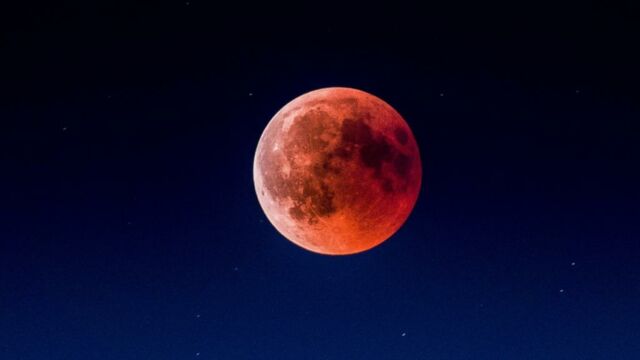The month of May is quite an exciting one for astronomy enthusiasts. Several events, easily observable, are scattered over the 30 days. After two showers of shooting stars, it is a total eclipse of the Moon that budding astronomers will be able to admire.
Discover our latest podcast
What is a total lunar eclipse?
Lunar eclipse, solar eclipse... what is the difference? Both phenomena are similar, but one detail changes everything: the position of the Earth! During a solar eclipse, the Moon is sandwiched between our planet and the Sun. It thus casts a shadow over us, and the temporary darkness makes it look like night in the middle of the day.
During a lunar eclipse, the opposite happens: this time it is the Earth that is sandwiched and shadows its moon. Curiously, this phenomenon doesn't make the Moon totally invisible, as the waves emitted by the Sun give the Moon a reddish tinge.
What's up in the night sky for May? A total lunar eclipse will be visible in the Western Hemisphere on May 15-16, and two great planet-spotting opportunities begin and end the month. When & where to look up: pic.twitter.com/R9fZ3EM55V
— NASA (@NASA) May 1, 2022
When to observe this eclipse?
Technically, the phenomenon will take place on May 16, but it is important to note that it will start very early in the morning, around 2:30 am BST. You will have to get up early or stay up late to see this total lunar eclipse to watch the first phase, known as the penumbral eclipse, which is when most of the sun’s light is blocked out.
The second phase or the umbral eclipse starts at 3:27 am BST. During this phase is when we can see the darkest part of Earth’s shadow passing across the lunar surface, according to The Guardian.
The full eclipse will be at 4:29 am BST, and the moon will turn a coppery red.
This article was translated from Gentside FR.
Read more:
⋙ What does the annular eclipse mean for your star sign?
⋙ Here's how to watch the Eta Aquariids meteor shower tonight















